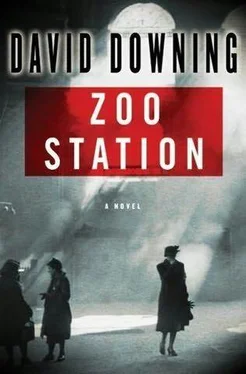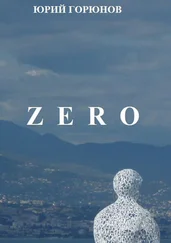David Downing - Zero Station
Здесь есть возможность читать онлайн «David Downing - Zero Station» весь текст электронной книги совершенно бесплатно (целиком полную версию без сокращений). В некоторых случаях можно слушать аудио, скачать через торрент в формате fb2 и присутствует краткое содержание. Жанр: Шпионский детектив, на английском языке. Описание произведения, (предисловие) а так же отзывы посетителей доступны на портале библиотеки ЛибКат.
- Название:Zero Station
- Автор:
- Жанр:
- Год:неизвестен
- ISBN:нет данных
- Рейтинг книги:5 / 5. Голосов: 1
-
Избранное:Добавить в избранное
- Отзывы:
-
Ваша оценка:
- 100
- 1
- 2
- 3
- 4
- 5
Zero Station: краткое содержание, описание и аннотация
Предлагаем к чтению аннотацию, описание, краткое содержание или предисловие (зависит от того, что написал сам автор книги «Zero Station»). Если вы не нашли необходимую информацию о книге — напишите в комментариях, мы постараемся отыскать её.
Zero Station — читать онлайн бесплатно полную книгу (весь текст) целиком
Ниже представлен текст книги, разбитый по страницам. Система сохранения места последней прочитанной страницы, позволяет с удобством читать онлайн бесплатно книгу «Zero Station», без необходимости каждый раз заново искать на чём Вы остановились. Поставьте закладку, и сможете в любой момент перейти на страницу, на которой закончили чтение.
Интервал:
Закладка:
“Fine,” Russell agreed, and started up the four flights of stairs which led to his rooms. At the top he paused for breath before unlocking the door and wondered for the umpteenth time about moving to a block with a lift. His rooms were stuffy and hot, so he left the front door ajar and risked opening a window by a few millimeters.
Stretched out on the threadbare sofa, he went through his mail. Paul’s postcard began “Dear Dad,” but seemed mostly concerned with the Christmas presents he’d received from his stepfather. The boy did say he was looking forward to the football game on Saturday, though, and Russell took another look out of the window to convince himself that the weather was warming up and that the game would be played.
The envelope from America was indeed a Christmas card from his mother. It contained one cryptic line: “This might be a good year to visit me.” She was probably referring to the situation in Europe, although for all Russell knew she might have contracted an incurable disease. She certainly wouldn’t tell him if she had.
He opened the business letters. The one from his American agent contained a check for $53.27, payment for an article on “Strength Through Joy” cruises which a dozen US papers had taken. That was the good news. The Berlin letter was a final, rather abusively written demand for payment on a typewriter repair bill, which would account for more than half the dollar inflow.
Looking round the room at the all-too-familiar furniture and yellowing white walls, at the poster from Effi’s first film, the tired collage of photographs, and the dusty overloaded bookshelves, he felt a wave of depression wash over him.
The city’s largest wertheim department store occupied a site twice the size of the late-lamented Reichstag, and a frontage running to 330 meters. Inside, it boasted 83 lifts, 100,000 light bulbs and 1,000 telephone extensions. Russell knew all this because he had written an article on the store a year or so earlier. More to the point, the restaurant offered good food and service at a very reasonable rate, and it was only a five-minute walk from the British embassy on Wilhelmstrasse.
Doug Conway had already secured a table, and was halfway through a gin and tonic. A tall man of around 35 with sleek blond hair and bright blue eyes, he looked custom-made for Nazi Berlin, but was in fact a fairly decent representative of the human race. State-educated and low-born by embassy standards-his father had been a parks superintendent in Leeds-he had arrived in Berlin just as the Nazis seized power. His pretty young wife Mary was probably brighter than he was, and had once confided in Russell that she intended to torch the Blau-Weiss Club before she left Berlin.
Conway’s taste in food had not traveled far from his roots. He looked pained when Russell ordered the pigs knuckle and sauerkraut, and plumped for the pot roast and mash.
“I’ve got some teaching work for you if you want it,” he told Russell while they waited. “It’s a Jewish family called Wiesner. The father is-was-a doctor. His wife is ill most of the time, though I don’t know what with-worry, most likely. Their son was taken off to Sachsenhausen after Kristallnacht and hasn’t been seen since, though the family have heard that he’s still alive. And there are two daughters, Ruth and Marthe, who are both in their teens-thirteen and fifteen, or something like that. It’s them you’d be teaching.”
Russell must have looked doubtful.
“You’d be doing me a real favor if you took them on,” Conway persisted. “Felix Wiesner probably saved Phyllis’s life-this was back in 1934-there were complications with the birth and we couldn’t have had a better doctor. He wasn’t just efficient; he went out of his way to be helpful. And now he can’t practice, of course. I don’t know what he intends to do-I don’t know what any of them can do-but he’s obviously hoping to get his daughters to England or the States, and he probably thinks they’ll have a better chance if they speak English. I have no idea what his money situation is, I’m afraid. If he can’t earn, and there’s all the new taxes to pay… well… But if he can’t pay your normal rate then I’ll top up whatever he can afford. Just don’t tell him I’m doing it.”
“He might like the idea that somebody cares,” Russell said.
“I don’t know about…”
“I’ll go and see him.”
Conway smiled. “I hoped you’d say that.” He pulled a folded piece of paper out of his inside pocket and passed it across the table. “Here’s his address.”
It was in Friedrichshain, hardly a normal stomping ground for high-class Jewish doctors.
“He used to live in Lьtzow,” Conway explained. “Now they’re all hunkering down together in the poorest areas. Like medieval ghettos.”
The food arrived and they ate in silence for a couple of minutes, before exchanging news of their children and the German schools they were attending. Conway and his wife had also seen Effi’s musical, and clearly wished they hadn’t, though Conway was much too diplomatic to actually say so.
Over coffee Russell asked how the Embassy saw the next few months.
“Off the record?”
“Off the record.”
“We’re on a knife-edge. If our mustachioed chum is happy with what he’s got, then fine. The appeasers will say ‘I told you so-he may be a nasty little shit, but he can be managed.’ But if he goes after more-Danzig or the Corridor or the rest of Czechoslovakia-then Churchill and his pals will be the ones saying, ‘I told you so.’ And there’ll be a war.”
“Doug, how do you persuade the British people that the Czechs weren’t worth fighting for, but the Poles are? The Czechs have a functioning democracy of sorts. The Poles would be just like this lot if they had any talent for organization.”
Conway grimaced. “That’ll be up to the politicians. But I’ll tell you what London’s really worried about. If Hitler does behave for a few years, and if he keeps building tanks, U-boats and bombers at the current rate, then by Forty-one or Forty-two he’ll be unstoppable. That’s the real nightmare. As far as we’re concerned-from a purely military point of view-the sooner the better.”
There was no telephone at the Wiesners’ but, as Conway had noted, the doctor didn’t have much to go out for. No U-bahn had been built out into the working class wastes of Friedrichshain, so Russell took a 13 tram from the Brandenburg Gate to Spittelmarkt and a 60 from there to Alexanderplatz and up Neue Konigstrasse. The city deteriorated with each passing kilometer, and by the time he reached his destination most of it seemed to be on sale. The sidewalk was lined with makeshift tables, all piled high with belongings that would-be Jewish emigrants were trying to shift. The complete works of Dickens in German were on sale for a few Reichsmarks, a fine-looking violin for only a little more.
The Wiesners’ block made his own seem middle class. The street was cobbled, the walls plastered with advertisements for auctions and lists of items for sale. On the pavement a group of painfully thin young girls were hopping their way through a game of Heaven and Earth on a chalkmarked grid. In the courtyard of the Wiesners’ building the far wall still bore the faintest outline of a large hammer and sickle and the much-faded slogan ERST ESSEN, DANN MIET-first food, then rent.
The Wiesners shared two overcrowded rooms on the second floor. Contrary to Conway’s expectation, the doctor was out. He was only attending to a neighbor, however, and the older of the two daughters was sent to fetch him, leaving Russell, Frau Wiesner, and her younger daughter to exchange small talk. Frau Wiesner, a small woman with tied-back blond hair and tired gray eyes, looked anything but Jewish, while her younger daughter Ruth bore a striking resemblance to Effi, both physically and, Russell judged, temperamentally. Effi had often been mistaken for a Jew, and various employers had insisted she carry the fragebogen, which testified to her Aryan descent, at all times. She of course liked nothing better than shoving the mistake back in people’s faces.
Читать дальшеИнтервал:
Закладка:
Похожие книги на «Zero Station»
Представляем Вашему вниманию похожие книги на «Zero Station» списком для выбора. Мы отобрали схожую по названию и смыслу литературу в надежде предоставить читателям больше вариантов отыскать новые, интересные, ещё непрочитанные произведения.
Обсуждение, отзывы о книге «Zero Station» и просто собственные мнения читателей. Оставьте ваши комментарии, напишите, что Вы думаете о произведении, его смысле или главных героях. Укажите что конкретно понравилось, а что нет, и почему Вы так считаете.












